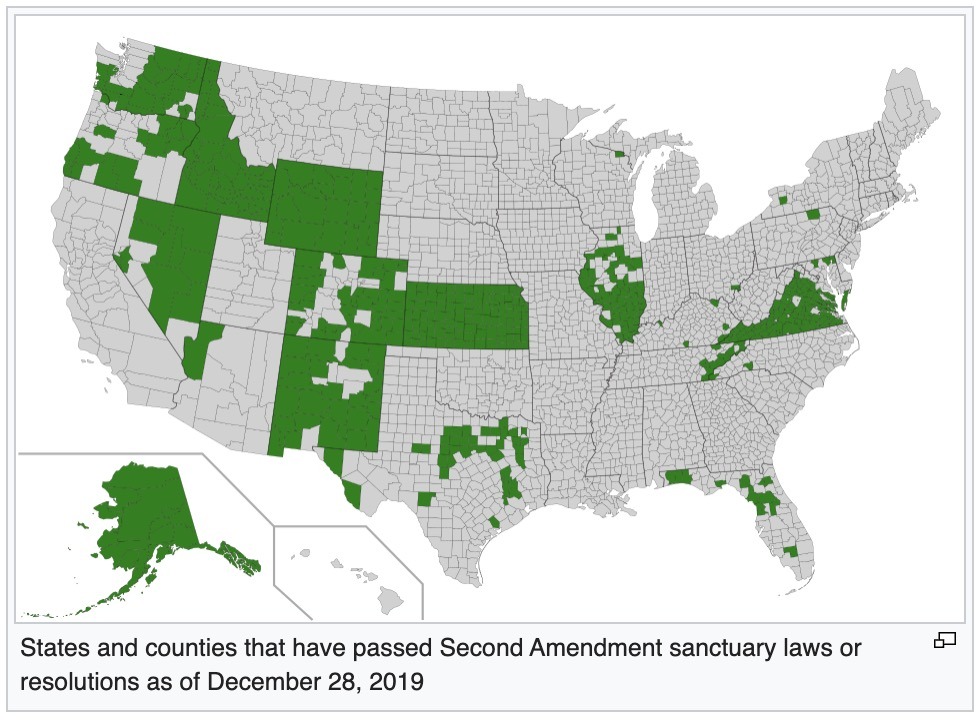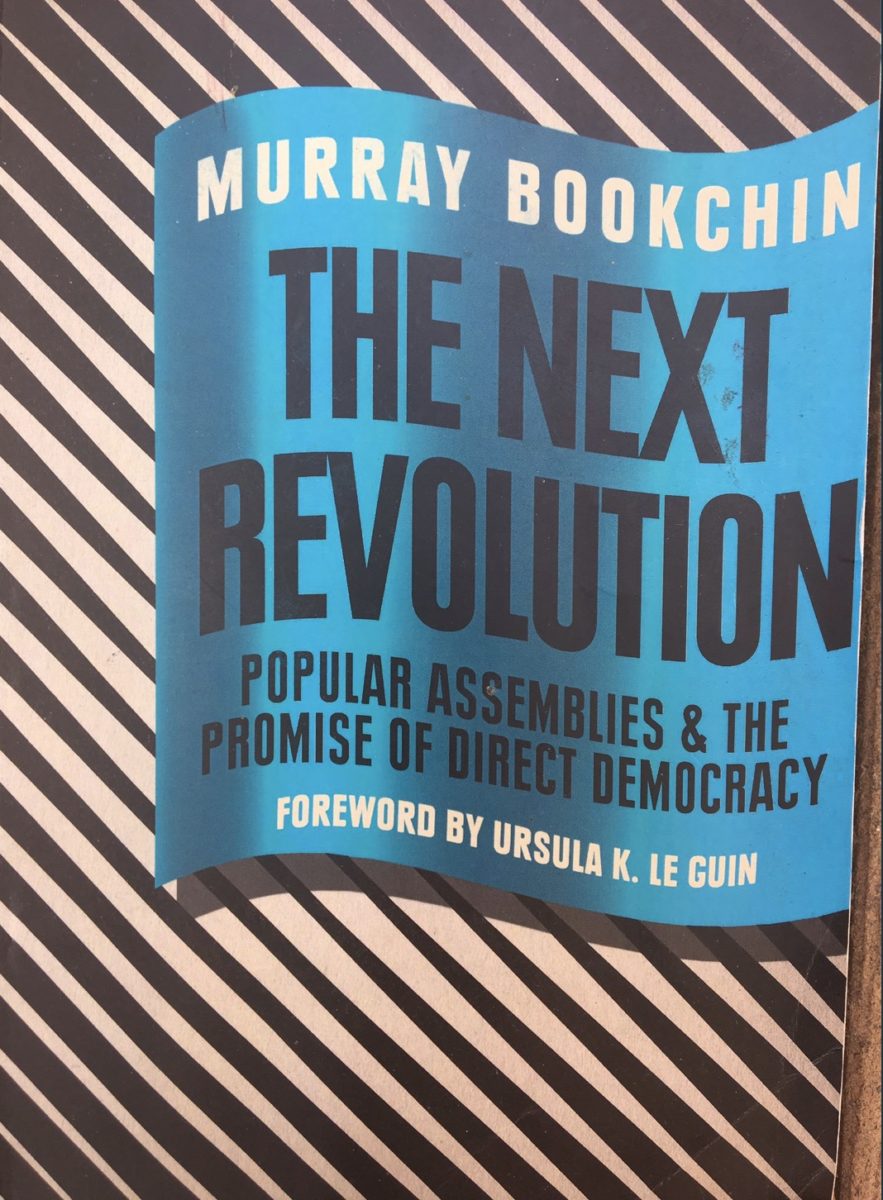Many of you probably have heard of the second amendment sanctuary movement, which consists of municipalities and counties across the U.S. passing resolutions pledging not to enforce additional gun control measures infringing upon the right to bear arms. The current movement traces its origins back to Effingham County in southern Illinois, which passed a resolution in April 2018 calling the county a second amendment “sanctuary”, essentially a vow to ignore gun control legislation proposed by Illinois state lawmakers. This particular tactic gained traction not just within Illinois, where 67 of 102 counties have now passed similar resolutions, but throughout the country.
The movement started gaining more attention over the past couple of months following the blistering momentum it found in Virginia after Democrats won the state legislature in November. As of this writing, 87 out of Virginia’s 95 counties have passed such resolutions and it’s important to note that virtually all of them were passed in the two months since the election. In other words, this is happening at a very rapid pace.
Donate bitcoins: 35DBUbbAQHTqbDaAc5mAaN6BqwA2AxuE7G
Follow me on Twitter.




